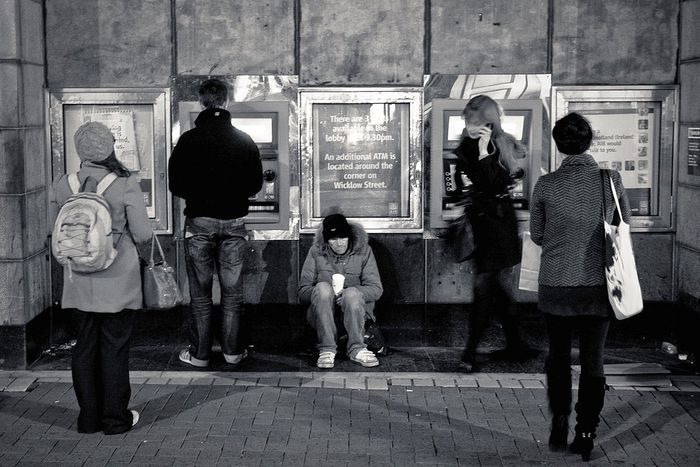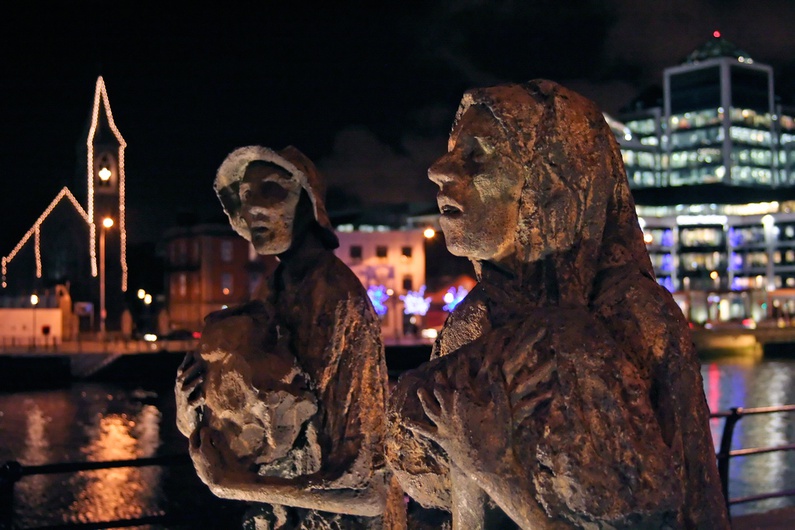
A 21st century lockout: social injustice in Ireland
Published on
The recent commemoration of the 1913 Lockout in Dublin was successful in portraying the social injustices of Ireland's past, but it became evident that there is still a lack of recognition of the social injustices of Ireland's present
On Saturday 31 August people assembled in O'Connell Street in Dublin city centre to participate in the state commemoration of the 100th Anniversary of the 1913 Lockout, when unionised workers were dismissed and locked out of their workplaces in the Irish capital by unscrupulous employers who were determined to break the emerging trade union movement. The event was organised to show solidarity with the struggle for social rights in the past.
What a funny bunch!
Dublin was a great place to be on the 31st for those who enjoy historical drama and costumes. At times it looked like an open-air performance of Sherlock Holmes. There were musical performances, readings from prominent Irish actors and a re-enactment of the 1913 Lockout, with participants kitted out in realistic costumes from the time. Pictures of working men in breeches, women in funny hats and old-style policemen in archaic uniforms flooded the Sunday papers. Weren’t we all a funny bunch!
There was lots of reflection on the past, but little discussion of the present. There were no powerful speeches from politicians and few comparisons made between the social situation of the pre-independence Ireland of 1913 and post-crisis Ireland of 2013. The proceedings were marked by a minute’s silence that was more conspicuous than solemn. Some did compare the passion of the past with the apathy of today, Paddy Malone, an onlooker from Islandbridge in central Dublin remarked: 'We give out about the financial crisisin the pubs but we don't stand up for our rights as our ancestors did.'
The past is a different country
It’s true, the city centre of Dublin in 1913 was, in many ways, a far cry from the modern Irish capital of today. Housing conditions were atrocious and were considered, at the time, as some of the worst in western Europe. There were 20, 000 families in Dublin city living in single room tenements, and tuberculosis was rampant among the poor.
It was these dire conditions that gave birth to radical socialist politics, in a country previously defined by social conservatism and dominated by the Catholic church. Jim Larkin and James Connolly, leaders of the Irish transport and general workers union who had been leading workers in industrialised Belfast, began to organise the Dublin working poor into unions to improve their social conditions. When wealthy Dublin employers, led by prominent media tycoon William Martin Murphy, dismissed and locked out over 300 workers in July 1913, Dublin slowly descended into chaos and further deprivation. Three died due to police brutality, and countless more were brought to early graves by loss of income. Dublin’s workers, on the brink of starvation, reluctantly went back to their workplaces and signed pledges not to join unions in early 1914.
The strike was broken but the people were radicalised, politicised, and the principle of solidarity firmly established. Despite the vitriol of the established media, the defiance of the strikers and the justness of their cause captured the imagination of the Irish people.
The poverty of the past can be difficult for to digest. It was more stark, more raw. As British novelist Leslie Poles Hartley once wrote: 'the past is a different country.' The situation of working men and women in Europe in 2013 may be very different from 1913, but two things remain consistent: poverty is still widespread and the privileged few still dominate society, the traditional media and the economy. 
Continuing in silence
Real, tangible and desperate poverty has been re-emerging in Europe since the onset of the financial crisis. 120 million people are at risk of poverty or social exclusion, and 50 million live in a household where no-one has a job. For those that claim that 21st century poverty is subjective, two statistics ring true: today in Europe 43 million people are unable to afford food to adequately feed themselves, and at least 4.1 million people are homeless.
But it is not only unemployment that has pushed Europeans into poverty. Underemployment and poor quality jobs have grown as employers exploit a workforce desperate to hold on to any type of job. Some are locked out of the system; others are trapped within it. In Berlin, capital of Europe's most developed economy, young people have been known to work for as little as 55 cents an hour.
Poverty in Dublin today, like many European cities, may not be as evident as it was in 1913. If you take a casual glance down O'Connell Street you will see kids drinking soft drinks and staring at iphones. But poverty is there, relegated to the corners, dark alleyways and skips. We all know it is there, but most of us don’t do anything. We too are happy to continue in silence.



